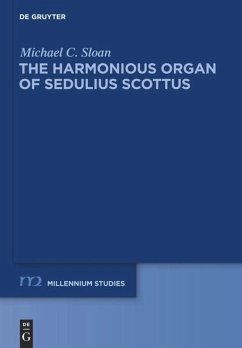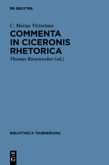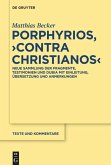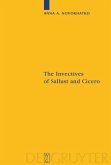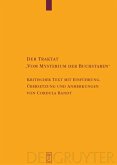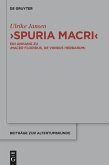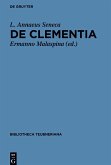This book introduces and translates Sedulius Scottus' Prologue (to the entire Collectaneum in Apostolum) and commentaries on Galatians and Ephesians. The introduction outlines the historical context of composition, identifies Sedulius' literary model - Servius, discusses Sedulius' organizing trope for the Prologue - the septem circumstantiae, asserts for what purpose and for whom he composed the Collectaneum, explains pertinent philological and stylistic issues, such as formatting, existing (or lack thereof) traits of Hiberno Latin, and Sedulius' knowledge of Greek, and it explores his use of exegetical and theological sources - predominantly Jerome, Augustine, and Pelagius. Since the commentaries are based upon these formative religious authors (among many others), the introduction also surveys Sedulius' doctrinal stances on important theological and ecclesiastical issues of his own time with particular relation to his reception of these authors. Sedulius' Collectaneum in Apostolum reveals an erudite author familiar with the style of classical commentaries, which he uses to harmonize the sometimes discordant voices of patristic authors for the purposes of education in accordance with Carolingian programmatic aims.
Millennium überschreitet Grenzen, Grenzen zwischen den Epochen und regionalen Räumen wie auch Grenzen zwischen den Disziplinen. Die Schriftenreihe Millennium-Studien ist, genauso wie das Jahrbuch, international, interdisziplinär und epochenübergreifend ausgerichtet. Das Herausgebergremium und der Beirat repräsentieren ein breites Fächerspektrum: Kunst- und literaturwissenschaftliche Beiträge kommen ebenso zu ihrem Recht wie historische, theologische und philosophische, und die Millennium-Studien bieten gleichermaßen Raum für Arbeiten zu den lateinischen und griechischen wie zu den orientalischen Kulturen.
In die Studien finden einschlägige Monographien und Sammelwerke aus dem gesamten Themenspektrum Aufnahme, zudem Kommentare und Editionen. Publikationssprachen sind vornehmlich Deutsch und Englisch; die Aufnahme französischer, italienischer und spanischer Arbeiten ist möglich.
Falls Sie ein Manuskript für die Studien einreichen möchten, bitte wir Sie, sich an den fachnächsten Herausgeber zu wenden.
Alle Manuskripte werden von dem jeweiligen Herausgeber und von einem externen Gutachter beurteilt. Dabei gilt das Single-blind peer review-Verfahren.
Millennium überschreitet Grenzen, Grenzen zwischen den Epochen und regionalen Räumen wie auch Grenzen zwischen den Disziplinen. Die Schriftenreihe Millennium-Studien ist, genauso wie das Jahrbuch, international, interdisziplinär und epochenübergreifend ausgerichtet. Das Herausgebergremium und der Beirat repräsentieren ein breites Fächerspektrum: Kunst- und literaturwissenschaftliche Beiträge kommen ebenso zu ihrem Recht wie historische, theologische und philosophische, und die Millennium-Studien bieten gleichermaßen Raum für Arbeiten zu den lateinischen und griechischen wie zu den orientalischen Kulturen.
In die Studien finden einschlägige Monographien und Sammelwerke aus dem gesamten Themenspektrum Aufnahme, zudem Kommentare und Editionen. Publikationssprachen sind vornehmlich Deutsch und Englisch; die Aufnahme französischer, italienischer und spanischer Arbeiten ist möglich.
Falls Sie ein Manuskript für die Studien einreichen möchten, bitte wir Sie, sich an den fachnächsten Herausgeber zu wenden.
Alle Manuskripte werden von dem jeweiligen Herausgeber und von einem externen Gutachter beurteilt. Dabei gilt das Single-blind peer review-Verfahren.

